Hee Kwon Song
Learning Apparent Diffusion Coefficient Maps from Undersampled Radial k-Space Diffusion-Weighted MRI in Mice using a Deep CNN-Transformer Model in Conjunction with a Monoexponential Model
Jul 06, 2022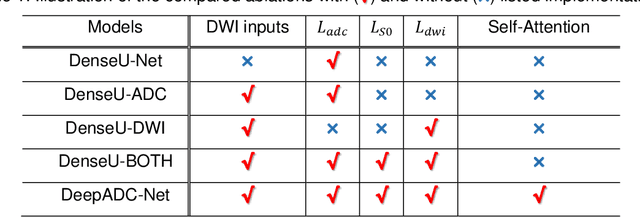
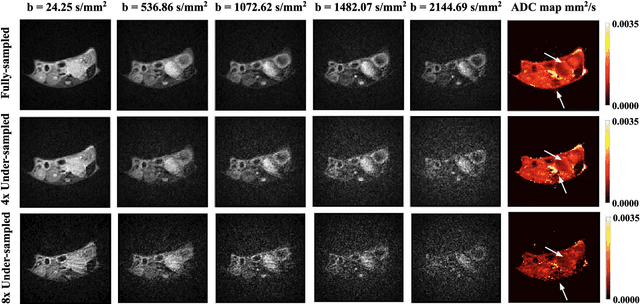
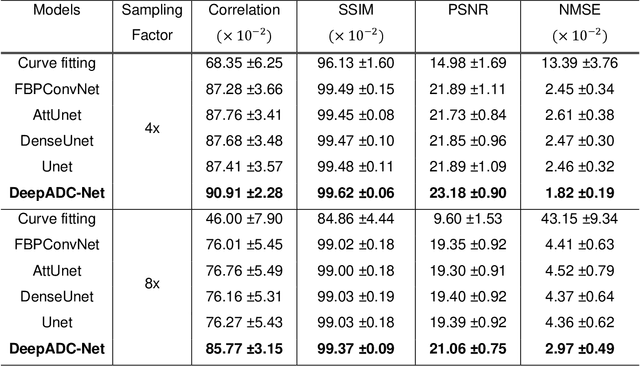
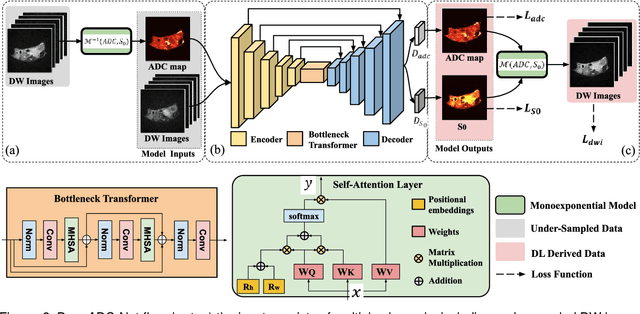
Abstract:Purpose: To accelerate radially sampled diffusion weighted spin-echo (Rad-DW-SE) acquisition method for generating high quality of apparent diffusion coefficient (ADC) maps. Methods: A deep learning method was developed to generate accurate ADC map reconstruction from undersampled DWI data acquired with the Rad-DW-SE method. The deep learning method integrates convolutional neural networks (CNNs) with vison transformers to generate high quality ADC maps from undersampled DWI data, regularized by a monoexponential ADC model fitting term. A model was trained on DWI data of 147 mice and evaluated on DWI data of 36 mice, with undersampling rates of 4x and 8x. Results: Ablation studies and experimental results have demonstrated that the proposed deep learning model can generate high quality ADC maps from undersampled DWI data, better than alternative deep learning methods under comparison, with their performance quantified on different levels of images, tumors, kidneys, and muscles. Conclusions: The deep learning method with integrated CNNs and transformers provides an effective means to accurately compute ADC maps from undersampled DWI data acquired with the Rad-DW-SE method.
Adaptive convolutional neural networks for k-space data interpolation in fast magnetic resonance imaging
Jun 09, 2020


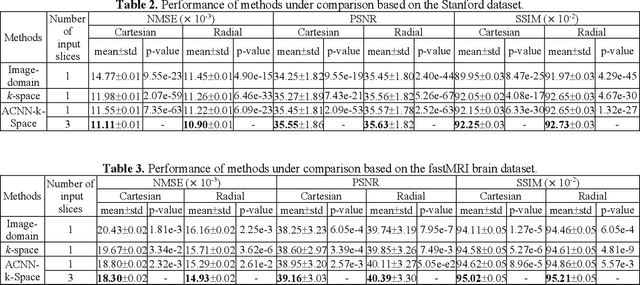
Abstract:Deep learning in k-space has demonstrated great potential for image reconstruction from undersampled k-space data in fast magnetic resonance imaging (MRI). However, existing deep learning-based image reconstruction methods typically apply weight-sharing convolutional neural networks (CNNs) to k-space data without taking into consideration the k-space data's spatial frequency properties, leading to ineffective learning of the image reconstruction models. Moreover, complementary information of spatially adjacent slices is often ignored in existing deep learning methods. To overcome such limitations, we develop a deep learning algorithm, referred to as adaptive convolutional neural networks for k-space data interpolation (ACNN-k-Space), which adopts a residual Encoder-Decoder network architecture to interpolate the undersampled k-space data by integrating spatially contiguous slices as multi-channel input, along with k-space data from multiple coils if available. The network is enhanced by self-attention layers to adaptively focus on k-space data at different spatial frequencies and channels. We have evaluated our method on two public datasets and compared it with state-of-the-art existing methods. Ablation studies and experimental results demonstrate that our method effectively reconstructs images from undersampled k-space data and achieves significantly better image reconstruction performance than current state-of-the-art techniques.
 Add to Chrome
Add to Chrome Add to Firefox
Add to Firefox Add to Edge
Add to Edge